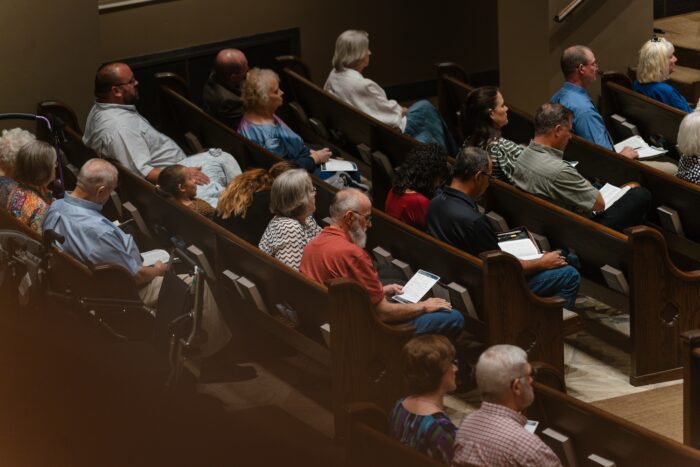Editor’s note: This year marks the centennial anniversaries of the Cooperative Program’s creation, the adoption of the Baptist Faith & Message, and the SBC’s ownership of Southwestern Seminary. To celebrate these 100 years of Southern Baptist cooperation, Southwestern has compiled eleven essays from key Southern Baptist leaders and seminary faculty for an original series on the ETC blog. The entire series, which will publish over the course of eleven weeks, will be available here.
At the very heart of Southern Baptist convictions about the importance of cooperation is the biblical mandate to fulfill Jesus’s Great Commission to make disciples of all the nations. In this article, we intend to summarize how Southern Baptist efforts in the areas of missions and evangelism draw upon our commitment to cooperation.
Missions
The genius of the Southern Baptist Convention (SBC) is how a small, country church of ten to twenty active members can be a part of reaching all the people groups of the world with the Gospel. By themselves, this is unimaginable, but in cooperation with other churches it is altogether possible. In reflecting on the beginnings of the SBC, Jason Duesing remarks “the reason why Baptist churches sought to cooperate at a national level, with all of its necessary machinery, politics, stresses, and strains, was for the purpose of uniting to send the Gospel to those who have never heard (Rom 15: 21).”1 The idea is that we can fulfil the Great Commission more effectively if we work together. Certainly, individual churches can do missions on their own, but there is a synergy that happens when we do it in cooperation with each other.
Cooperation in Sending Missionaries
The Lord is calling Christians to go across the world to people groups without the Gospel. If these Christians are members of a cooperating Southern Baptist church, they don’t have to struggle and stress over whether their individual church has all the resources, physical and spiritual, to send them. They can confidently apply to serve with the International Mission Board, knowing that thousands of SBC churches are participating in sending them. And not just one-off sending, but continually sustaining them through prayer, resources, and other kinds of support. This kind of cooperation removes significant barriers for those called to serve as missionaries.
Cooperation for all the Components of Missions
Without evangelism there is no missions, but biblically healthy missions understands that it is about much more than just evangelism. The command from Christ is to make disciples, and this means beginning with evangelism and then including discipleship, church formation, leadership, and theological training. For one church to prepare a missionary to do all of this in another culture and language is a huge challenge, maybe even impossible. But if we cooperate and allow our seminaries and other agencies to train a missionary for all these components, then the challenge seems altogether doable. By God’s grace this is what we have in the SBC and its institutions and agencies.
Cooperation for Meeting the Needs of a Lost World
When we consider the people groups that are still unreached by the Gospel, many live in parts of the world that are unwelcoming to a missionary. Gaining entry to these areas often requires a significant investment of resources where missionaries genuinely and with integrity meet the physical and social needs of the people which then opens a door for the Gospel. For an individual church to take on the full burden of meeting the physical and social needs is a daunting prospect. The amazing thing about the way we cooperate as the SBC is that we are able to resource an agency called Send Relief. In turn, Send Relief is able to resource our missionaries to meet the physical and social needs of a particular people group, gaining access for them and the Gospel. There would be no Send Relief if the churches of the SBC did not cooperate.
Evangelism
The value of cooperation in sharing the Gospel extends beyond those engaged in overseas missions. It is equally vital for reaching the lost within our communities. In America, we encounter lost people from diverse cultural backgrounds, including ours, and we refer to this form of Gospel outreach as evangelism. When we work together, our evangelistic efforts become more effective. The Southern Baptist Convention’s outreach initiative, Crossover, is a prime example of this cooperative approach in evangelism.
Crossover: A Catalyst for Denominational Cooperation
Each year, as the Southern Baptist Convention (SBC) prepares for its annual meeting, something remarkable occurs in the host city. In the week leading up to the annual meeting, churches, seminaries, and mission organizations unite for a single purpose: sharing the Gospel through Crossover. Coordinated by the North American Mission Board (NAMB) in partnership with local Southern Baptist churches, this evangelistic initiative has become more than just an outreach event—it is a powerful catalyst for denominational cooperation.
A Unified Mission
At its core, Crossover embodies the cooperative spirit that defines the SBC. This initiative brings together local churches, SBC seminaries, and mission-minded volunteers from across the country, all working in unity to reach the lost. It demonstrates the strength of a denomination that values both theological integrity and missional urgency. By rallying around the Great Commission, Crossover reminds Southern Baptists that evangelism is not an isolated effort, but a shared responsibility. The combined resources, strategies, and manpower maximize the impact, proving that Gospel proclamation is most effective when done in partnership.
A Model of Partnership
Crossover serves as a tangible example of the Cooperative Program in action. While the Cooperative Program primarily functions as a financial mechanism supporting missions, theological education, and church planting, Crossover highlights a different dimension of cooperation—one that is hands-on and relational. This event illustrates how local churches, SBC entities, and national mission organizations can work together seamlessly to engage a community with the Gospel.
Through Crossover, the six SBC seminaries provide students with invaluable evangelistic experience, equipping future pastors, missionaries, and church leaders to engage in Gospel conversations in real-world settings. Likewise, local churches benefit from the influx of trained evangelists who help them reach their communities in new and impactful ways. This collaboration is mutually enriching, fostering a deeper sense of unity within the SBC.
Strengthening Local Churches
Another significant aspect of Crossover is its lasting impact on local churches in the host city. While the SBC annual meeting lasts only a few days, the outreach efforts of Crossover have long-term effects. Churches receive encouragement as believers from across the country join them in evangelism. Additionally, they gain practical tools and strategies they can use well beyond the convention.
Crossover also revitalizes local congregations, reigniting their passion for personal evangelism. Many church members who participate find themselves reinvigorated in their Gospel witness, leading to a sustained culture of evangelism long after the event concludes.
A Picture of the SBC at Its Best
In an era when denominational identity is sometimes questioned, Crossover offers a compelling picture of the SBC at its best. It is a moment when theological education, missions, and local church ministry intersect for the sake of the Gospel. It serves as a powerful reminder that Southern Baptists are at their strongest when they work together.
Moreover, Crossover encourages those outside the SBC by demonstrating the cooperative nature of Southern Baptists in action. As churches and volunteers engage in Gospel conversations, they not only reach the lost but also showcase a model of partnership that reflects the heart of cooperative evangelism.
As the SBC continues to navigate challenges and opportunities, Crossover remains a beacon of what is possible when believers unite in mission. It is more than an event—it is a movement that exemplifies the power of working together to fulfill the Great Commission.
The Southern Baptist Convention’s worldwide missions enterprise and our annual Crossover evangelism initiative serve as reminders that, despite differences in methodology and ministry contexts, Southern Baptists are bound together by a common calling: to make disciples of all nations, which is undergirded by our convictions about and practice of cooperation.
- Jason Duesing, “Pre-beginnings,” in Make Disciples of All Nations, eds. John D. Massey, Mike Morris, and W. Madison Grace (Grand Rapids: Kregel Academic, 2021), 51. ↩︎








